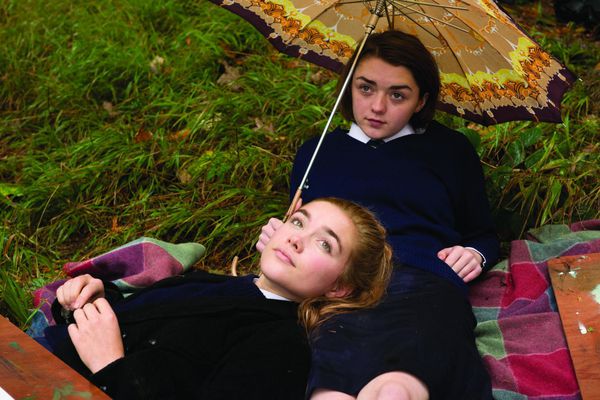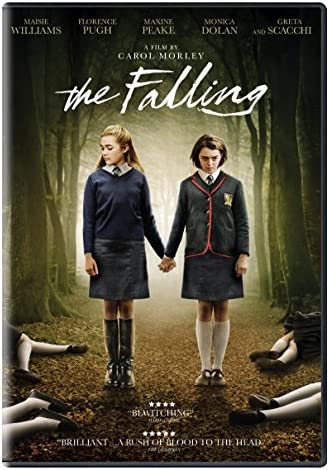Eye For Film >> Movies >> The Falling (2014) Film Review
The Falling
Reviewed by: Jennie Kermode

The breakthrough film for Carol Morley as she began making forays into fiction, The Falling has that quality of boldness and perversity which has come to typify her work, yet since its original release in 2014 it has struggled to find an audience. Nine years on, Shudder has come to the rescue, offering it a new lease on life, and one hopes that it will now get the attention it deserves.
It is, admittedly, a difficult film, and a film about difficult women. On a simple reading it might appear trite, too tidily explained, but one can’t really assume that everything is resolved at the end, or that the characters understand themselves as well as they might seem to. Morley’s work is full of unpredictable, confused characters – that is, characters who feel more fully human than an hour and 40 minutes or so of narrative fully makes room for. She gets away with it because she always has an excellent cast, and this film is no different.

Doubtless many people will be attracted to it because of the presence of Game Of Thrones star Maisie Williams, who plays central character Lydia, a troubled girl who is out of place at her school, struggling at home with a distant, agoraphobic mother, and clashing with her brother as teenagers often do. The only real brightness in her life stems from her friendship with Abbie (Florence Pugh, in her début role), but the tides of adolescence are beginning to pull them apart. Emotions run high when Abbie sleeps with her brother, but the real calamity comes afterwards, when Abbie suffers from a series of fainting fits and subsequently dies.
The film’s central conceit comes into play after this, when Lydia herself begins to faint, and other girls in the school, as well as a teacher, follow suit. Despite the lengthy cinematic history of girls’ schools being portrayed as sanctuaries for delicate creatures who swoon gracefully at the slightest opportunity, this is a school which feels real and earthy; the fainting is ugly, the falls look painful. It is very much apparent that something is wrong – and yet doctors can find no physical cause. Talk of hysteria ensues – that term applied over the centuries to any number of difficult-to-explain female behaviours, implied here, as in some other latter day works, as a means of pathologising a natural psychological (and psychosomatic) response to the pressures placed on women and girls in a society built by men.
The film moves on to tackle still more difficult themes as Maisie’s continuing obsession with Abbie prompts her to go to extremes. The final danger which she faces is itself one traditionally associated with monstrous femininity, and it seems appropriate that this should emerge at the same time that she and her mother have a confrontation and old secrets finally emerge.
Can Lydia and her mother reconcile their difficulties with one another? Will the other girls resume their normal behaviour in Lydia’s absence? What does it mean for Lydia to be continually positioned at a distance from others, and what can she learn from it? In the context of the other female experiences in this film, the fainting comes to seem like a form of resistance, the only thing which truly unites the female characters and gives them the ability to cause disruption on a scale which Lydia alone cannot.
With impressive support from Maxine Peake and Greata Scacchi, this is an intriguing piece of work which, for all its imperfections, deserves its second chance. There’s more to appreciate about if if you’ve followed Morley’s work since, and it’s a reminder of the importance of taking risks in filmmaking. Any reasonably skilled individual can turn out a passable film by playing it safe, but most of those won’t be remembered. Morley’s experiments, even when they don’t quite come off, seem to be laying the groundwork for something special.
Reviewed on: 29 Jan 2023

















